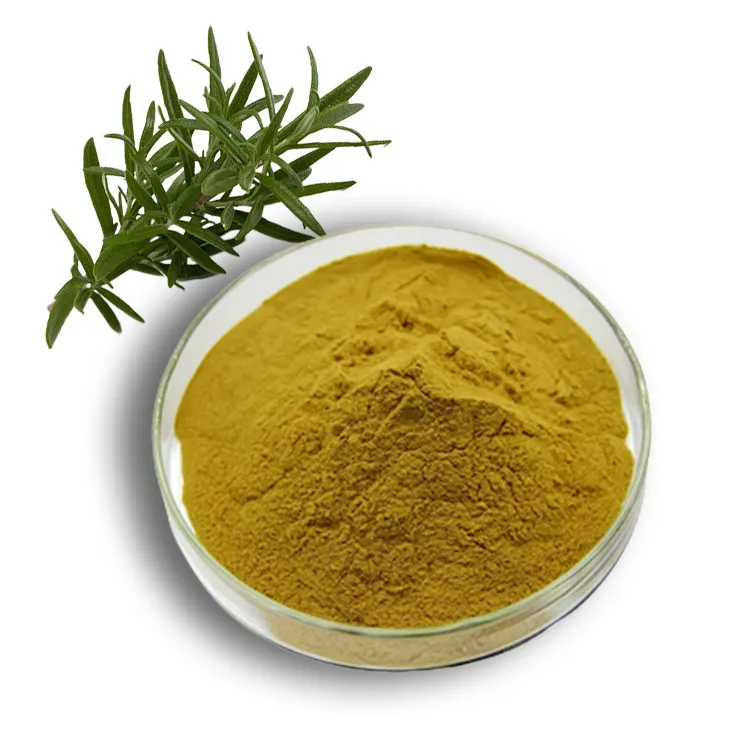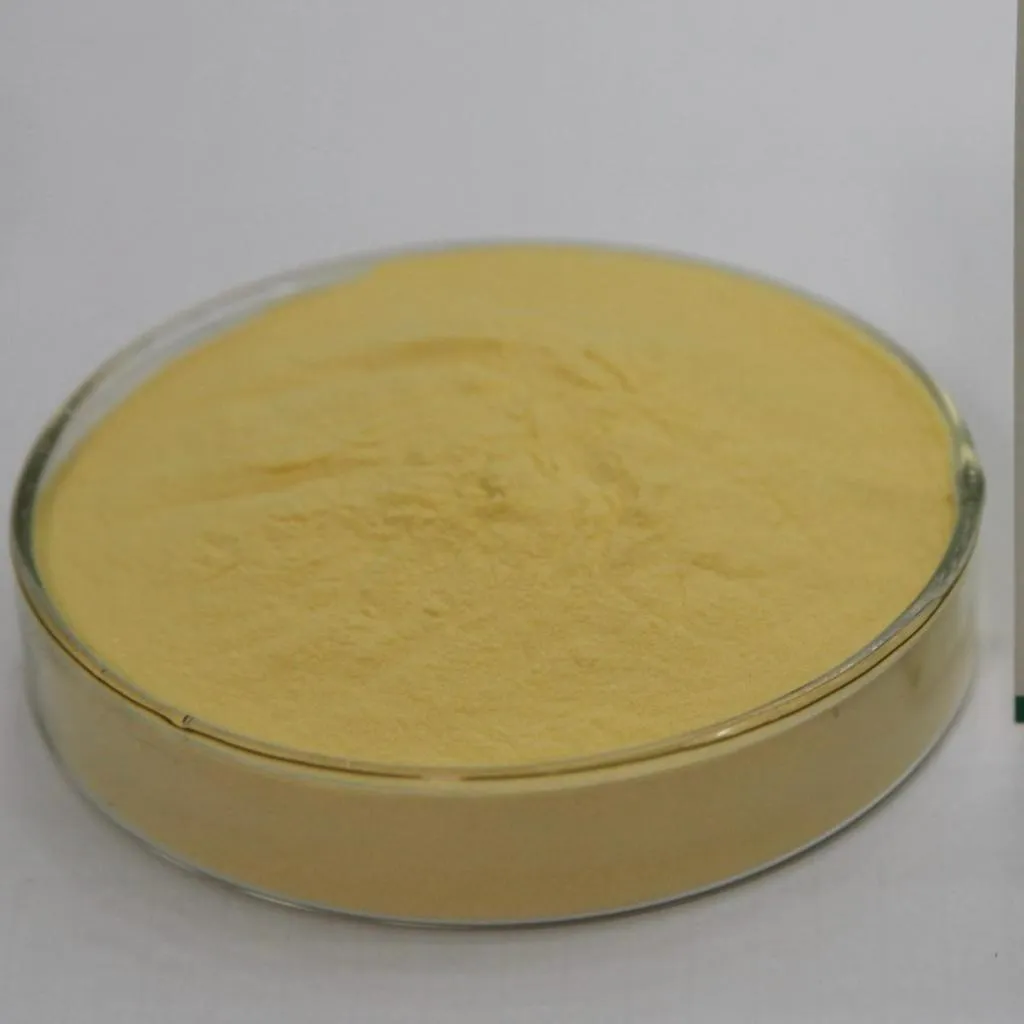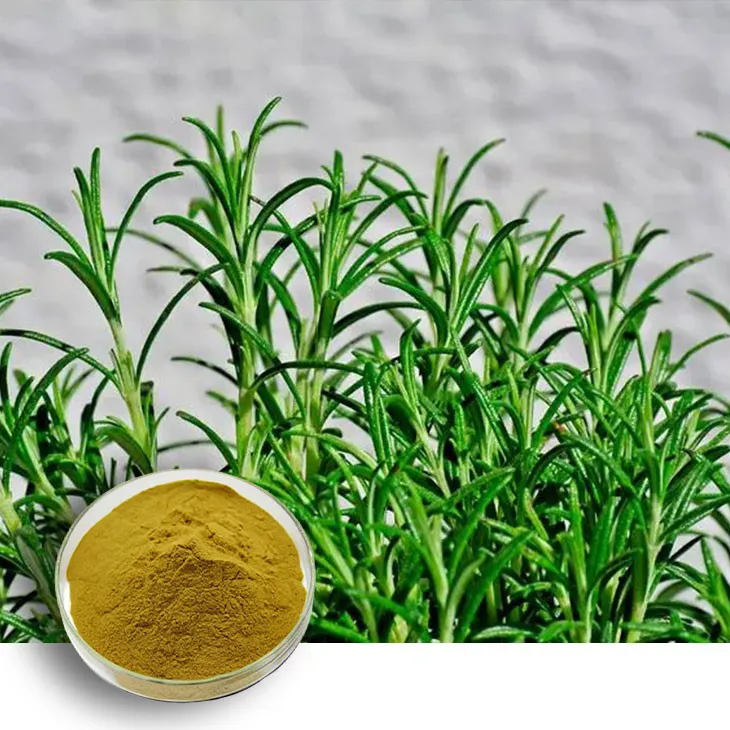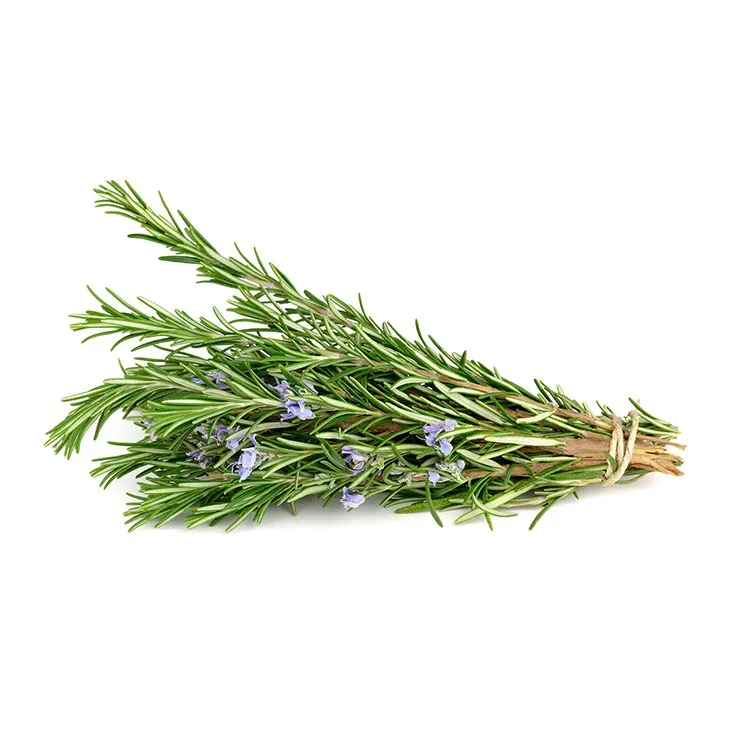- 0086-571-85302990
- sales@greenskybio.com
Rosemary extract in Trinidad and Tobago.
2024-12-10

1. Introduction to Trinidad and Tobago's Rosemary
Trinidad and Tobago, a twin - island nation in the Caribbean, is known for its rich biodiversity. Rosemary, in particular, has found a special place in its natural product landscape. The tropical climate, characterized by warm temperatures and ample sunlight, combined with the diverse ecosystems ranging from coastal areas to inland forests, creates an ideal environment for rosemary to grow. The soil in this region is also rich in nutrients, which further contributes to the healthy growth of rosemary plants.

2. Cultivation and Harvesting of Rosemary
The cultivation of rosemary in Trinidad and Tobago is a carefully managed process. Farmers in the region have been passing down traditional farming techniques for generations. They understand the specific needs of rosemary plants, such as the right amount of water, sunlight, and spacing between plants.
During the harvesting season, the rosemary is picked at the optimal time to ensure the highest quality of the extract. This is usually when the plants have reached a certain level of maturity. The harvested rosemary is then carefully processed to preserve its natural properties.

3. Health Benefits of Rosemary extract
3.1 Anti - Inflammatory Properties
The Rosemary extract from Trinidad and Tobago contains a variety of bioactive compounds that are responsible for its anti - inflammatory properties. Inflammation is a natural response of the body to injury or infection, but chronic inflammation can lead to a host of health problems. These bioactive compounds work by modulating the body's immune response and reducing the production of inflammatory mediators.
For example, in conditions such as arthritis, where inflammation in the joints can cause pain and reduced mobility, the anti - inflammatory properties of Rosemary extract may offer some relief. Studies have shown that regular consumption or topical application of rosemary extract can help reduce inflammation - related symptoms.
3.2 Antioxidant Effects
Another important aspect of the health benefits of rosemary extract is its antioxidant activity. The modern lifestyle exposes our bodies to a large number of free radicals, which are unstable molecules that can cause damage to cells. The antioxidants in rosemary extract can neutralize these free radicals, protecting the body from oxidative stress.
This antioxidant protection is crucial for maintaining the health of various organs in the body, including the heart, liver, and skin. It can also play a role in preventing chronic diseases such as cancer and heart disease by reducing the damage caused by free radicals over time.

4. Applications in the Cosmetic Field
4.1 Haircare Products
Rosemary extract has become a very popular ingredient in haircare products in Trinidad and Tobago and around the world. In haircare, it offers multiple benefits.
- Strengthening hair follicles: The nutrients in the rosemary extract can penetrate the scalp and provide essential nourishment to the hair follicles. This helps to strengthen them, reducing hair fall and promoting healthier hair growth.
- Improving hair texture: Regular use of products containing rosemary extract can make the hair feel smoother and softer. It can also help to detangle the hair, making it more manageable.
- Adding shine to the hair: The extract can coat the hair shaft, creating a natural shine. This gives the hair a healthy - looking appearance without the use of harsh chemicals.
4.2 Skincare Products
In skincare, rosemary extract is also being explored for its potential benefits. Its antioxidant and anti - inflammatory properties make it suitable for use in products aimed at treating skin conditions such as acne and eczema.
It can help to soothe irritated skin, reduce redness, and protect the skin from environmental damage. Some skincare products also use rosemary extract for its antibacterial properties, which can help to keep the skin clean and free from infections.

5. Potential in the Pharmaceutical Industry
The rosemary extract from Trinidad and Tobago is attracting the attention of the pharmaceutical industry. Scientists are conducting extensive research to explore its potential role in drug development.
5.1 Treatment of Oxidative - Related Diseases
As mentioned earlier, the antioxidant properties of rosemary extract make it a promising candidate for the treatment of diseases related to oxidative damage. Oxidative stress is implicated in many diseases, including neurodegenerative diseases such as Alzheimer's and Parkinson's.
Researchers are investigating how the bioactive compounds in rosemary extract can be harnessed to develop drugs that can prevent or slow down the progression of these diseases. By reducing oxidative stress in the brain, it may be possible to protect neurons from damage and improve cognitive function.
5.2 Anti - Cancer Properties
There is also growing evidence suggesting that rosemary extract may have anti - cancer properties. Some studies have shown that certain compounds in rosemary extract can inhibit the growth of cancer cells in vitro. However, more research is needed to determine whether these effects can be replicated in vivo and whether rosemary extract can be developed into an effective cancer treatment.
6. The Competitive Edge in the Global Market
The unique terroir of Trinidad and Tobago gives its rosemary extract a distinct competitive edge in the global market.
- Quality: The combination of the ideal growing conditions and traditional cultivation methods results in a high - quality rosemary extract. The extract is rich in bioactive compounds, which makes it more effective compared to some other sources.
- Sustainability: Trinidad and Tobago's commitment to sustainable farming practices ensures that the production of rosemary extract is environmentally friendly. This is an increasingly important factor in the global market, as consumers are more conscious about the environmental impact of the products they buy.
- Authenticity: The rosemary extract from Trinidad and Tobago has a unique flavor and aroma profile, which is a result of the local terroir. This authenticity can attract consumers who are looking for natural products with a distinct origin.
7. Challenges and Future Prospects
Despite the many advantages of Trinidad and Tobago's rosemary extract, there are also some challenges that need to be addressed.
7.1 Market Awareness
One of the main challenges is increasing market awareness. Although the extract has great potential, it is not as well - known as some other natural products in the international market. More efforts are needed to promote the benefits of Trinidad and Tobago's rosemary extract to a wider audience.
7.2 Regulatory Requirements
The pharmaceutical and cosmetic industries are highly regulated. Meeting the regulatory requirements for product development and marketing can be a complex and time - consuming process. Producers of rosemary extract in Trinidad and Tobago need to ensure that they comply with international standards to be able to enter the global market.
Looking ahead, the future prospects for Trinidad and Tobago's rosemary extract are promising. With continued research and development, it is likely that more applications for the extract will be discovered. The increasing demand for natural products in the global market also provides an opportunity for the local industry to expand.
FAQ:
What are the bioactive compounds in Rosemary extract from Trinidad and Tobago?
There are various bioactive compounds in the Rosemary extract from Trinidad and Tobago. Some of the important ones include phenolic compounds like rosmarinic acid, which is known for its antioxidant and anti - inflammatory properties. These bioactive compounds contribute to the many potential health and other benefits of the extract.
How is Rosemary cultivated in Trinidad and Tobago?
In Trinidad and Tobago, rosemary is likely cultivated in areas with suitable soil and sunlight conditions. Given its tropical climate, it may be grown in well - drained soil, perhaps in open fields or in some cases, in more controlled agricultural settings. Adequate watering and protection from pests and diseases are also important aspects of its cultivation process, although specific cultivation methods may vary among different farmers or agricultural enterprises.
What makes Rosemary extract from Trinidad and Tobago special in the haircare industry?
The Rosemary extract from Trinidad and Tobago is special in the haircare industry because it contains nutrients and bioactive compounds that can strengthen hair follicles. It also has the ability to improve hair texture by making it smoother and less frizzy. The shine - enhancing property is another factor that makes it a popular ingredient in haircare products. These qualities are a result of the unique composition of the extract which is influenced by the local environment where the rosemary is grown.
How is the Rosemary extract from Trinidad and Tobago being explored in the pharmaceutical industry?
In the pharmaceutical industry, scientists are exploring the Rosemary extract from Trinidad and Tobago for its potential role in drug development. They are particularly interested in its relationship to diseases related to oxidative damage. Since the extract contains antioxidant bioactive compounds, it may be able to help combat oxidative stress in the body, which is associated with many diseases. Research may involve in - vitro studies, animal models, and eventually clinical trials to determine its efficacy and safety in treating relevant diseases.
What are the advantages of the tropical climate of Trinidad and Tobago for Rosemary growth?
The tropical climate of Trinidad and Tobago offers several advantages for Rosemary growth. Firstly, the warm temperatures throughout the year provide a stable environment for the plants to grow continuously. Adequate sunlight, which is abundant in a tropical climate, is essential for photosynthesis, allowing the rosemary plants to produce more of the bioactive compounds. Also, the humidity levels, if properly managed in the cultivation process, can contribute to healthy plant growth, although too much humidity may also pose risks of fungal diseases which need to be controlled.
Related literature
- The Potential of Rosemary (Rosmarinus officinalis) Extracts in Health and Cosmetics"
- "Rosemary: A Review of its Botany, Phytochemistry, Pharmacology, and Toxicology"
- "Cultivation and Utilization of Rosemary in Tropical Regions"
- ▶ Hesperidin
- ▶ Citrus Bioflavonoids
- ▶ Plant Extract
- ▶ lycopene
- ▶ Diosmin
- ▶ Grape seed extract
- ▶ Sea buckthorn Juice Powder
- ▶ Fruit Juice Powder
- ▶ Hops Extract
- ▶ Artichoke Extract
- ▶ Mushroom extract
- ▶ Astaxanthin
- ▶ Green Tea Extract
- ▶ Curcumin
- ▶ Horse Chestnut Extract
- ▶ Other Product
- ▶ Boswellia Serrata Extract
- ▶ Resveratrol
- ▶ Marigold Extract
- ▶ Grape Leaf Extract
- ▶ New Product
- ▶ Aminolevulinic acid
- ▶ Cranberry Extract
- ▶ Red Yeast Rice
- ▶ Red Wine Extract
-
Lemon Balm Extract
2024-12-10
-
Curcumin Extract
2024-12-10
-
Passionflower Extract
2024-12-10
-
Boswellia Serrata Extract
2024-12-10
-
Europen Bilberry Extract
2024-12-10
-
Chaste Berry Extract
2024-12-10
-
Hops Extract
2024-12-10
-
Citrus Aurantii Extract
2024-12-10
-
Chasteberry Extract
2024-12-10
-
Panax Ginseng Leaf Extract
2024-12-10





















